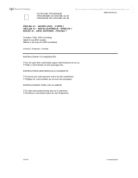The Canonization Commentary
All together, the poem is about a man who appears to be addressing outsiders who are critical towards his choice of love. The poem then can be taken as a type of dramatic monologue, where the speaker defends his choice of love from the upper class society who disapprove of the woman he chooses to love. However, the main character is relentless in his love for the woman, and he asks to be criticized, for any of his other faults, such as his old age or lost fortune, but to leave him and the woman he loves alone. He does not care about what others say or do, as long as they let love the woman of his choice in peace.
As this is the first stanza of the poem, it has significant importance as it introduces the reader to the poem. Donne wastes no time in presenting the plot of the poem as the first line is “For God’s sake hold your tongue and let me love.” This line is significant as the reader automatically understands that the character is asking others to leave him alone and let him love who he chooses to. As the first line requires a lot of emphasis and is often stressed and forceful, it creates a dramatic opening. Although many poems are introduced calmly through the first line, Donne chooses to do the opposite by introducing the poem through an angry and dramatically toned line, which in effect allows the reader to immediately understand the character’s anger towards the world. This line sets up the rest of the poem for the speaker to express his feelings towards those who interfere with his personal life.
In addition, through the author’s choice of words with rough, hard sounds that need to be stressed and forcefully said when spoken such as ‘For God’s sake, chide my palsy, ruined fortune’, he is able to indirectly express the character’s anger and annoyance as the sounds and words are associated with negative connotations.
Throughout the first passage, Donne’s character asks that society find other things to occupy themselves with such as their wealth, the arts, politics or religion. This is seen in the lines ‘with wealth your state…’ This gives the reader the impression that it is only the upper class society who has a problem with the character’s choice of love because during the time period in which this poem was written in, only the upper class were associated with wealth and politics. It also implies that the character may have once been a part of the upper class society, but has now been removed, as it is likely the upper class wouldn’t have associated with the life of a person from a lower class. This thought is confirmed by the line ‘or ruined fortune flout’ which indicates he has lost the fortune he used to have. Therefore, the reader is able to conclude that the character is indicating that his love for the woman is more important than any amount of wealth or status he had before. The reader is also able to grasp that the character must really love the woman to be able to sacrifice his life in the upper class for her. Donne therefore defends love against the corrupting values of politics and the privileged by telling the reader that love is above all material possessions and status in society. Donne incorporates metaphors throughout the first stanza to bring across his message to the reader. Instead of directly stating that society could preoccupy themselves with politics and money, he uses metaphors for political favors and money such as the line ‘Or the King’s real, or his stamped face.’ The King’s real is a metaphor for getting favors from the royal family, while ‘stamped face’ indicates money as the King’s face is put on coins. This line alone displays the corruption of the upper class society that the main character feels strongly against. The line ‘my five grey hairs’ is Donne’s way of indirectly expressing the character’s older age.







